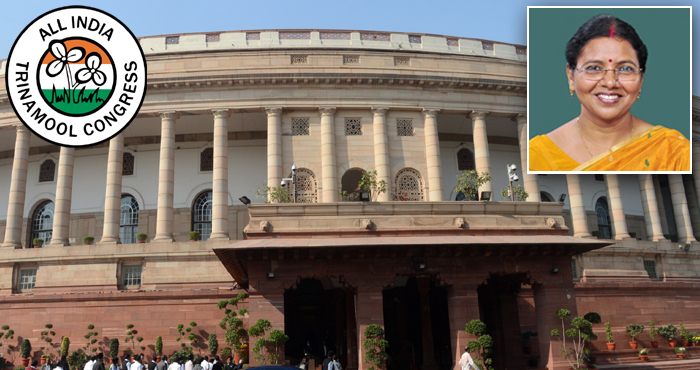July 26, 2018
Pratima Mondal speaks on The Trafficking of Persons (Prevention, Protection and Rehabilitation) Bill, 2018

FULL TRANSCRIPT
Sir, I rise to speak on The Trafficking of Persons (Prevention, Protection and Rehabilitation) Bill 2018.
Trafficking is not only a global concern but is also affecting a number of South Asian nations. It is commendable that India is taking pioneering action in formulating a comprehensive Bill. The new Bill proposes to prevent one of the most pervasive crimes affecting the most vulnerable persons. It ends at prevention, rescue and rehabilitation of the vulnerable target groups including women and children.
This Bill, however, does not propose much new things from what already exists. It however creates a new category of aggravated forms of trafficking, carrying a minimum punishment of 10 years, which may extend to life imprisonment. Some of the aggravated forms of trafficking included in the Bill are for the purposes of forced labour, begging, marriage and childbearing, which have already been included under the existing law. Similarly so-called ‘new offences’ such as administering hormones or committing trafficking by administering alcohol or drugs have already been included in the existing law.
The new Anti-Trafficking Bill appears to be flawed as there are provisions that are both problematic and make no sense. For instance, gradation of offences appears to be illogical. The Anti-Trafficking Bill categorises offences for certain purpose as aggravated forms of trafficking which carry a punishment of 10 years or life imprisonment. Logically, offences that are graded higher must be more serious or culpable than the Act that constituted trafficking under section 377 of the IPC, which attributes punishment from seven to 10 years of imprisonment and a fine. That is not the fact. Trafficking for the purpose of begging is considered aggravated whereas trafficking for sexual exploitation is simple trafficking.
Further, slavery and practices similar to slavery and servitude which form the most shocking forms of oppression and bondage as per domestic and international laws are also categorised as simple trafficking. Some of the provisions are also vague and impractical. The Bill criminalises a host of activities which lack culpabilities and criminal intent. As an example, this Bill authorises closure of premises which can be used as places for trafficking; therefore applied in the context of labour trafficking, this law would allow factories and farms to be closed down on complaints simply by police or any person.
The penal provision against promoting or facilitating the trafficking of persons are also vague. The aspects related to IT companies, travel goods and employment sites need more clarity. The provision for confiscation of properties has been addressed in a rather wide sense, therefore properties may be attached not only when they are used for an offence but also if they are likely to be used for commission of offence under the Act.
There is no guidance as to when and under what circumstances likelihood for the latter will arise, so as to warrant attachment of the properties. The Bill falls back on the outdated methods of rescuing and detaining victims in the name of rehabilitation.
Institutionalisation of victims in homes, apparently for protection and rehabilitation, is contradictory to their fundamental rights. The victims of trafficking, especially women who have been trafficked for sexual exploitation, need to be rehabilitated in homes or shelters which have the right environment for rehabilitation and integration into society rather than a hostile and unsafe environment resulting in trauma instead
Instead of streamlining enforcement, the anti-trafficking Bill encourages institutionalising by bureaucracy. Creating 10 different agencies including anti-trafficking officers, units, committees and the bureau at the district, State and national levels to counter the problem will result in chaos and policy indecision as well as passing the buck on questions of accountability.
Besides, none of the proposed authorities have any representation from the affected communities, whose participation and perspective are vital for addressing trafficking successfully. In fact, involvement of sex workers in the oversight committee and the anti-trafficking board was strongly recommended by the Supreme Court-appointed panel, in light of their effective role and contribution. This has been overlooked.
The problem of trafficking cannot be disassociated from poverty, livelihood, displacement and security. People have and will always move for work, whether out of distress or for better opportunities. Prisons cannot confine or capture the dreams and aspirations of people, specially the poor and the marginalised. Adopting an approach of imprisonment in jail to what is largely a socio-economic phenomenon is misplaced and unwise.
Before I conclude my speech I would like to refer to one incident which happened in an NGO-run home in the district of Jalpaiguri in Bengal. Child trafficking cases happened there and local and national level women leaders belonging to the ruling party were involved. If this is the present scenario then the slogan, ‘Beti Bachao’ is not only vague but is also just a showpiece.
Thank you, Sir
